Sunday 18th
Monday 19th
Tuesday 20th
Wednesday 21st
Thursday 22nd
KEYNOTE SPEAKERS

Bernard Henrissat is a Novo-Nordisk Foundation Professor in Enzyme Discovery at the Technical University of Denmark since April 2021. He is also Emeritus CNRS Director of Research at the University of Marseille, France, where he headed the Glycogenomics research team and the CAZy database. He has obtained a Ph.D. in Chemistry in 1979 and a D.Sc. in Physical Sciences in 1985, both from the University of Grenoble, France. Over the years he has studied all aspects of carbohydrate-active enzymes (CAZymes), from mechanistic enzymology to structural biology, from bioinformatics to genomics and metagenomics, from basic science to applications. He is probably best known for having proposed the classification of carbohydrate-active enzymes in sequence-based families in the early 90’s, for having launched the CAZy database (www.cazy.org) in 1998, and for its monthly updates since then. Over the last few years Bernard Henrissat has reported and continues reporting numerous novel CAZyme families and CAZyme activities, progressively uncovering the immense CAZyme diversity in the biosphere. His work, which links carbohydrates to genomic and metagenomic science, impacts all fields where complex carbohydrates play a role.
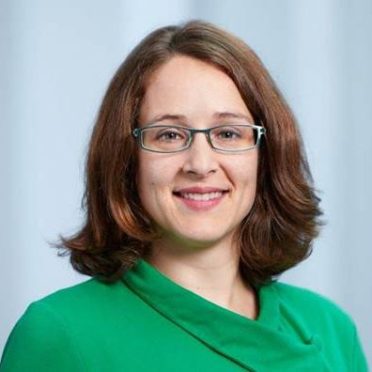
Clara Sánchez-Rodríguez is Assistant Professor of Plant Cell Biology at ETH Zurich since April 2015, and co-chair of the Institute of Molecular Plant Biology (ETHZ) since February 2017. She has a Master in Agronomy from Polytechnic University of Madrid, where she also obtained her PhD on plant resistance to necrotrophic fungi (supervised by A. Molina). During a short visit to Somervilles´ labs, she was fascinated by plant cell walls. Thus, her postdoctoral research focused on the mechanisms of cellulose synthesis in plants (at S. Persson´s group), pioneering the fields of cellulose synthesis regulation by hormones and vesicle trafficking. She is one of the leader discoverers of the TPLATE complex, a clathrin-mediated endocytosis adaptor essential in plants, but not present in animals and yeast. This achievement was honored by the Jeff Schell Award for Plant Scientists. Employing molecular and cell biology methods, her group contributes to understanding the molecular basis of the cell wall role in plant resilience, particularly during the intercellular growth of vascular fungi.
ROUND TABLES
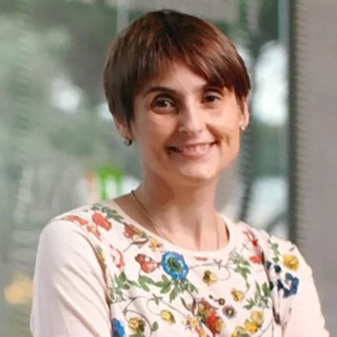
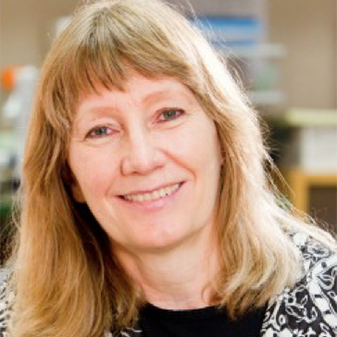
Debra Mohnen is Distinguished Research Professor at the Complex Carbohydrate Research Center and Department of Biochemistry and Molecular Biology at the University of Georgia. Her research focuses on pectin synthesis, structure and function with emphasis on the role of pectin glycan domains in wall architecture and plant cell growth. In 2008 she was awarded the Bruce Stone Award for research in pectin synthesis and elected as a fellow of the American Association for the Advancement of Science in 2013. Her research on synthesis of the two pectin glycan backbones, homogalacturonan and rhamnogalacturonan, led to the discovery of the GAUT and RGGAT families of glycosyltransferases and the recognition that pectin exits and functions as a family of glycan domains in cell wall heteroglycans and glycoconjugates. Since 2007 part of her research has been directed at improving plant biomass yield, sustainability and composition for production biofuel and biomaterials. As Focus Area Lead of Plant Biomass Formation and Modification in the DOE-funded BioEnergy Science Center (BESC) she directed a team of researchers aimed at understanding and overcoming biomass recalcitrance to deconstruction and since 2017 she serves as Research Domain Lead for Integrative Analysis and Understanding in the Center for Bioenergy Innovation (CBI).

How to be let to do cool science in a company.
I did my masters project at DuPont in Copenhagen, working on pectin structure and analytical tools to investigate methylation. This led me to talk to Henrik Scheller, at that time located in Copenhagen, and I started my PhD with him as the supervisor on the identification of pectin biosynthetic activities. Alongside this work, I finalized a project on xylan modification in wheat. My initial postdoc years were focused on applying learnings from my PhD in crop plants. Besides this, discussions on cell wall evolution started to emerge. Evolution became a full-time project during my stay at JBEI and after I returned to Copenhagen. All the work on plant cell wall evolution was quite successful as well as continuous fruitful collaboration with JBEI, expanding my publication list and ending with an appointment as Associate Professor in Copenhagen.
Then in 2015, being tired of the sluggish management as well as realizing I was spending more and more time on “non-science” stuff, I had a conversation with an old professor about all these hiccups. He proposed that I talked to Birgitte, my current leader, at Carlsberg Research Laboratory. I liked what I saw and heard, and I guess it was reciprocal, as I signed a contract shortly afterwards.
I still publish, collaborate with academic partners, write grant proposals (sigh), and teach and supervise students. But I also talk to my commercial colleagues, start projects that fit into a commercial strategy, solve problems for the business, and get free beers.
My skill T had become a little less deep, but immensely wider.
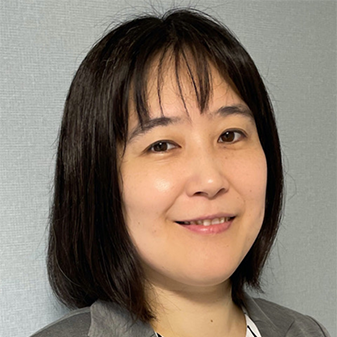
Misato Ohtani is currently an Associate Professor in Graduate School of Frontier Sciences at the University of Tokyo, where she has been since 2019. She received her Ph.D. in Biological Science from the University of Tokyo in 2005. From 2006 to 2013, she studied in RIKEN as a research scientist, and moved to Nara Institute of Science and Technology in 2014 as an assistant professor. Her work in plant cell wall biology targets secondary wall biosynthesis in xylem cells, focusing on the NAC-MYB-based transcriptional regulatory system. She has also investigated the diversity of NAC-MYB-based transcriptional network during the evolution of water-conducting cell in land plants, through the analyses of moss, fern, gymnosperm, and angiosperm plants. Recently her research interest has been expanded to environmental stimuli-derived dynamics of secondary wall formation, which is partly mediated by post-transcriptional regulation of key transcription factors. She is also working on integrating research with other research fields such as polymer chemistry, laser engineering, and materials engineering, to improve the multifaceted utilization of woody biomass for sustainable society.
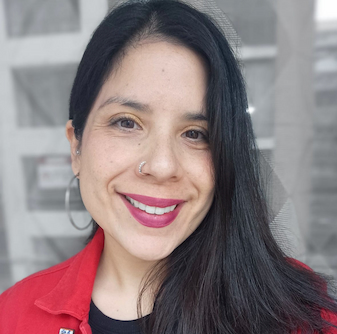
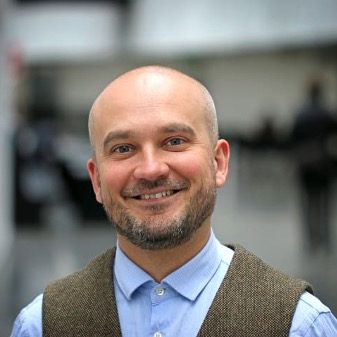
Francisco Vilaplana is a Chemical Engineer from the Polytechnical University of Valencia (UPV) in Spain and holds a double PhD degree in Material Sciences and Polymer Technology from both UPV and KTH Royal Institute of Technology in Stockholm (Sweden). After two postdoctoral stays at the University of Amsterdam (The Netherlands) and the Centre for Nutrition and Food Sciences at The University of Queensland (Australia), he moved back to Sweden in 2011, where he currently develops his research activities both in the academic and private sectors. He is Full Professor and Head of the Division of Glycoscience at KTH Royal Institute of Technology. He leads a research group on plant biochemistry and biotechnology, focused on the structural understanding of plant polysaccharides, their molecular structure and supramolecular assembly, and their valorisation into bio-based products for biomaterial and nutritional applications. He is founding Director of KTH FOOD – a multidisciplinary research centre for a sustainable food system. At the same time, since 2022 he is part-time principal scientist at Oatly, where he leads a research program on plant structure and health. He has published over 110 scientific publications and is currently the Chair of the panel “Chemical Engineering, Bioprocess Technology and Environmental Technology” at the Swedish Research Council. He is currently the President of the Association of Spanish Researchers in Sweden (ACES) and the President of the Network of Spanish Researchers Abroad (RAICEX), representing over 4.200 Spanish researchers overseas.
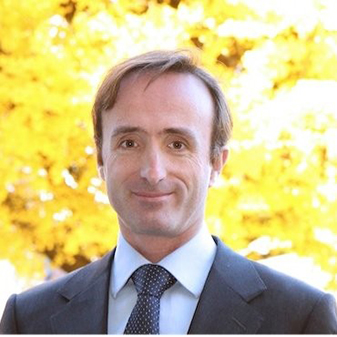
Juan Manuel is full professor at the UPM Mechanical Engineering Department. He is Associate Vice-Rector for Innovation and Director of the UPM Technology Transfer Office. He has a PhD in Industrial Engineering and an Executive MBA from IESE. His professional experience began as a postdoc at MIT and R&D engineer at Robert Bosch GmbH in Germany. Back at UPM, his teaching and research are focused on obtaining and applying new materials and components in machine engineering. He has been visiting professor at Tokyo Institute of Technology and Drexel University. He has been director or participant in more than 30 national and international research, technology transfer and scientific culture projects. He is the author of more than 50 articles published in international journals, and 12 national and international patents, 4 of which are in commercial exploitation. He is the founder of two technology-based companies.
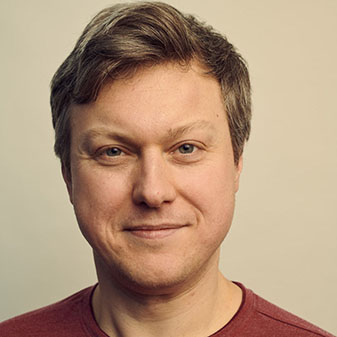
Jeremy holds a degree in Biochemistry from the University of Oxford and a PhD from Imperial College London, that focussed on production of lignocellulosic biofuels. Since leaving academia, he has spent over ten years at CPI, the UK National Industrial Biotechnology scale-up centre, the Technology Transfer Office at University of Bath, multinational speciality chemicals manufacturer Croda, and startups Zuvasyntha and The Supplant Company. The use of renewable resources, such as plant biomass, and environmentally sympathetic bioprocessing technologies has remained a common theme across all his work.
The Supplant Company takes abundant and renewable agricultural side-streams and turns them into healthier and more sustainable replacements for the world’s most pervasive food ingredients, such as sugar and refined flour. At the company, Jeremy oversees a first-class team of scientists whose activities span from early-stage ingredient discovery and process development to scale-up and manufacturing, as well as end product applications. Together they have submitted fourteen filings for protection of intellectual property and the company holds five granted patents in the US and elsewhere.
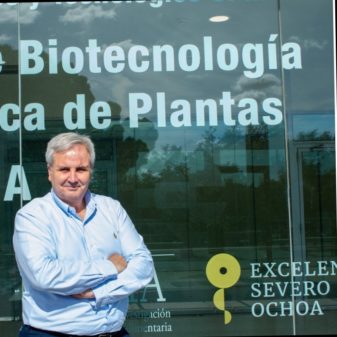
Antonio Molina is Professor of Biochemistry and Molecular Biology at the Department of Biotechnology and Plant Biology of the Universidad Politécnica de Madrid (UPM). Since February 2016 he is Director of the Centro de Biotecnología y Genómica de Plantas (CBGP), a joint research centre between the UPM and the Instituto Nacional de Investigación y Tecnología Agraria y Alimentaria (INIA/CSIC) (www.cbgp.upm.es). The CBGP has been awarded as Center of Excellence “Severo Ochoa” by the Spanish Research Agency (2017-2024; www.somma.es). The research activity of the group of Dr. Molina at the CBGP focuses on the study of Plant Immunity and its applications to crop protection (http://www.cbgp.upm.es/plant_innate.php), and in particular on the contribution of cell wall to immune response activation and disease resistance. Dr. Molina is a recognised expert in the area of plant resistance to necrothrophíc fungi. He has developed an intense activity of innovation and technology transfer in collaboration with national and international companies, that resulted in several Patents exclusively licensed to companies and in the commercialization of a cell-wall based agrobiological product. Dr. Molina is the co-founder of PlantResponse Biotech (www.plantresponse.com), a UPM spin-off enterprise that was acquired recently by Mosaic Company (USA). Dr. Molina is also co-founder of the UPM start-up enterprise FAIR Data Systems (http://www.fairdata.systems) and is leading the new genomics UPM start-up enterprise Genomics4All (www.genomics4all.com).
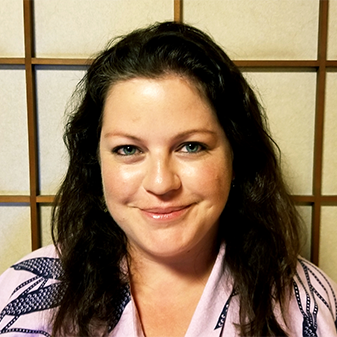
Jenny Mortimer is Associate Professor of Plant Synthetic Biology at the University of Adelaide, Australia. She is also an Affiliate Staff Scientist at Lawrence Berkeley National Laboratory, USA, and a Director of Plant Systems Biology at the Joint BioEnergy Institute, USA. After completing her PhD at Cambridge University, UK, she began exploring how engineering the plant cell wall could deliver sustainable and economically viable biofuels: first as a postdoc in Cambridge, then as a research fellow at RIKEN Japan, before joining Berkeley Lab in 2014, and Adelaide in 2021.At Adelaide, her group is using synthetic biology to develop new crops for food and materials production in controlled growth environments – including for Space settlement – as part of the newly formed ARC Centre of Excellence Plants for Space (P4S), and applying new agricultural biotechnologies to develop resilient field crops. In the US, her group works to reengineer the plant cell wall for the sustainable production of fuels and biochemicals from biomass, and to enhance plant-microbiome interactions for sustainable biomass crop production. She was selected as a World Economic Forum Young Scientist (2016/17), is a handling editor for Plant Cell Physiology and Plant Cell Reports, and holds one issued patent.
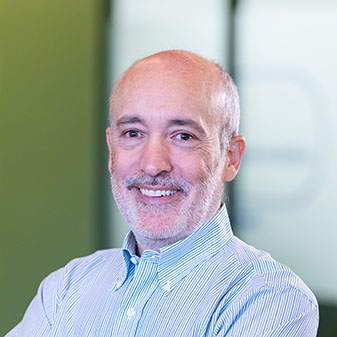
José Nolasco is Agronomical Engineer from Polytechnical University of Madrid (Spain) and has Master degree in Business and Marketing management from ESIC, Business and Marketing School (Spain).
José has more than 25 years of experience in different international companies in agronomy, with emphasis on fertilizer, biostimulant and crop nutrition. He currently works as Head of R&D Bionutrition in Rovensa Next with global responsibilities in product development, research, and knowledge management.
He is University Professor in the Polytechnical University of Madrid, Agricultural Production Department teaching different topics related to crop nutrition and crop management.
Member of the Steering Committee of Joint Research Unit “Biological Solution for Sustainable Agriculture” in the Centre for Plant Biotechnology and Genomics, UPM-INIA.
Member of the Board of European Biostimulant Industry Council (EBIC) as Director at-Large.


